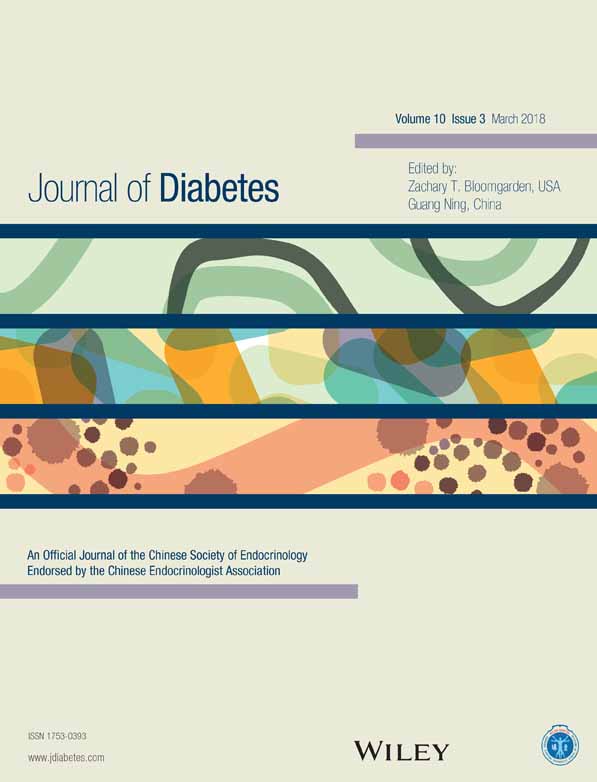Effect of glycemic control on the Diabetes Complications Severity Index score and development of complications in people with newly diagnosed type 2 diabetes
在新诊断的2型糖尿病患者中血糖控制情况对糖尿病并发症严重程度指数评分以及并发症进展的影响
Abstract
enBackground
The aim of the present study was to assess the longitudinal accumulation of diabetes-related complications and the effect of glycemic control on the Diabetes Complications Severity Index (DCSI) score in people with newly diagnosed type 2 diabetes (T2D).
Methods
A retrospective cohort study was conducted using electronic health records from a large integrated healthcare system. People with newly diagnosed T2D were identified between 2005 and 2016 and stratified by initial HbA1c category (<7%, <8%, ≥8%). The DCSI scores were determined for each study year, and the cumulative incidence of diabetes-related complications was assessed. A Cox proportional hazard model was used to evaluate the effect of baseline HbA1c and worsening glycemic (HbA1c) control on longitudinal changes in DCSI scores.
Results
Of 32 174 people identified as having newly diagnosed T2D, 14 016 (44%), 21 657 (67%), and 9983 (31%) had an initial or baseline HbA1c <7%, <8%, and ≥8%, respectively. Ten years after diabetes diagnosis, retinopathy, chronic kidney disease, coronary heart disease, and neuropathy were diagnosed in 22%, 29%, 24%, and 36% of people. Baseline HbA1c did not affect the observed trend in longitudinal changes in DCSI scores throughout the 11-year period. For people in each of the initial HbA1c groups (<7%, <8%, ≥8%), worsening or persistently poor glycemic control was significantly associated with a 10%, 19%, or 16% increase in the risk of experiencing an increased DCSI score, respectively (all P < 0.01).
Conclusions
Baseline glycemic control had no apparent effect on longitudinal changes in DCSI score. Worsening or persistently poor glycemic control was associated with an increased risk of an increase in the DCSI score.
摘要
zh背景
本研究旨在新诊断的2型糖尿病(T2D)患者中调查纵向累积的糖尿病相关并发症, 并且评估了血糖控制情况对糖尿病并发症严重程度指数(the Diabetes Complications Severity Index, DCSI)评分的影响。
方法
这是一项使用大型综合医疗系统电子健康档案进行的回顾性队列研究。确认患者为2005至2016年间新诊断的T2D患者后, 将他们按照最初的HbA1c水平进行分层(< 7 %、< 8%、≥ 8%)。每个研究年都要评估DCSI评分, 并且还要评估糖尿病相关并发症的累积发生率。使用Cox比例风险模型来评估基线HbA1c以及血糖控制(HbA1c)恶化以后对DCSI评分纵向变化的影响。
结果
在经过确认的32174名新诊断的T2D患者中, 最初或者基线时HbA1c < 7%、< 8%以及≥ 8%的患者数量分别为14016名(44%)、21657名(67%)以及9983名(31%)。诊断糖尿病10年后, 患者出现视网膜病变、慢性肾脏病变、冠心病以及神经病变的比例分别为22%、29%、24%与36%。在整个为期11年的研究期间, 观察到的DCSI评分纵向变化趋势都没有受到基线HbA1c水平的影响。在按照最初HbA1c(< 7%、< 8%、≥ 8%)分层的每个亚组患者中, 血糖控制恶化或者持续控制不良可导致DCSI评分增加的风险分别升高10%、19%或16%(所有P< 0.01)。
结论
基线血糖控制情况对DCSI评分的纵向变化没有明显的影响。血糖控制恶化或者持续控制不良有导致DCSI评分增加的风险。




